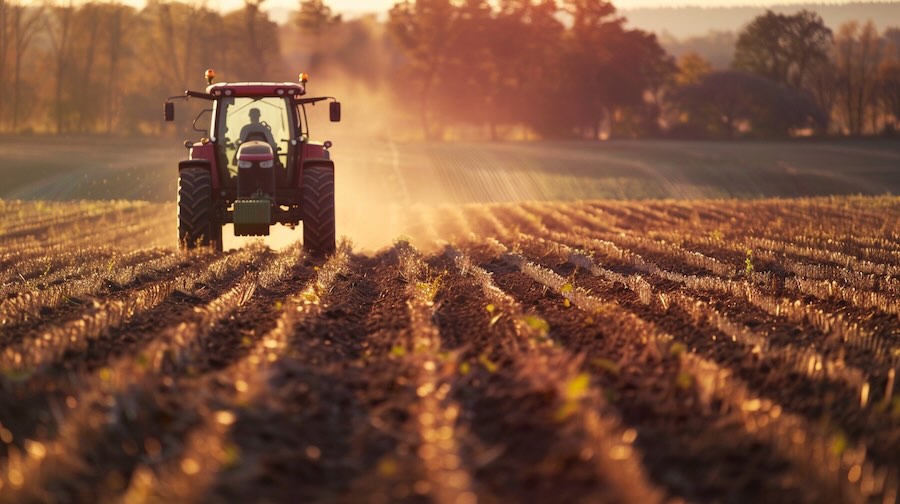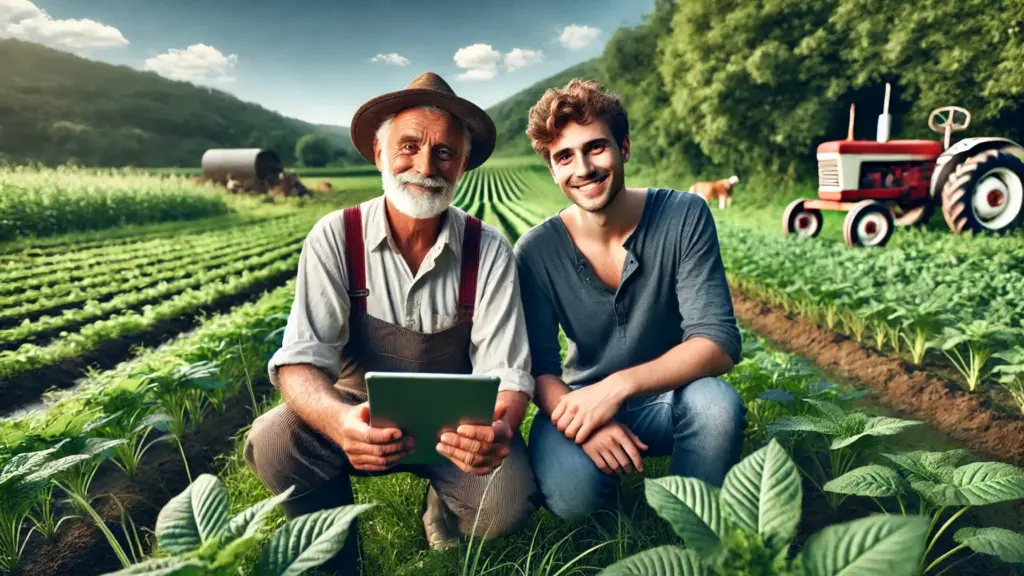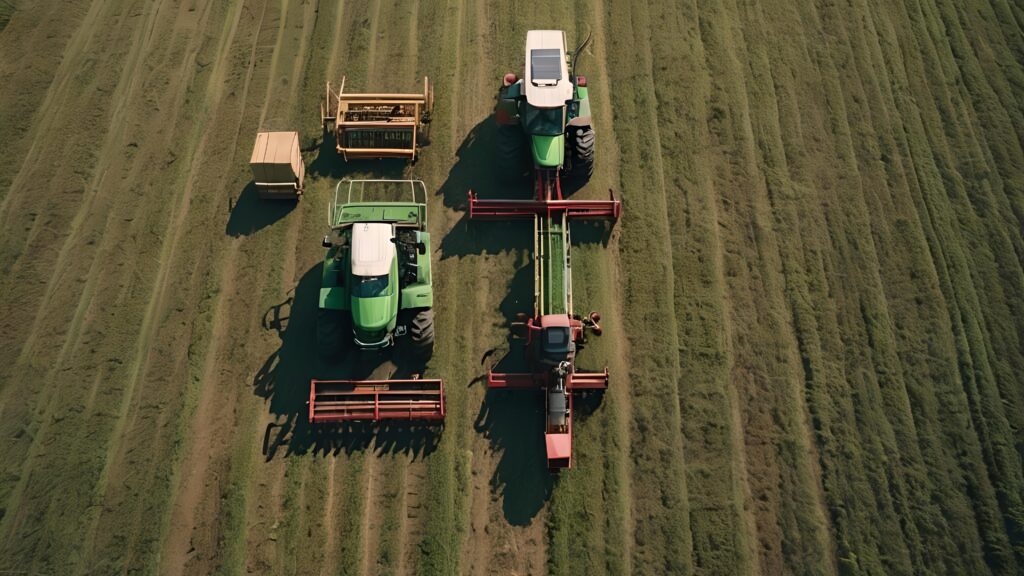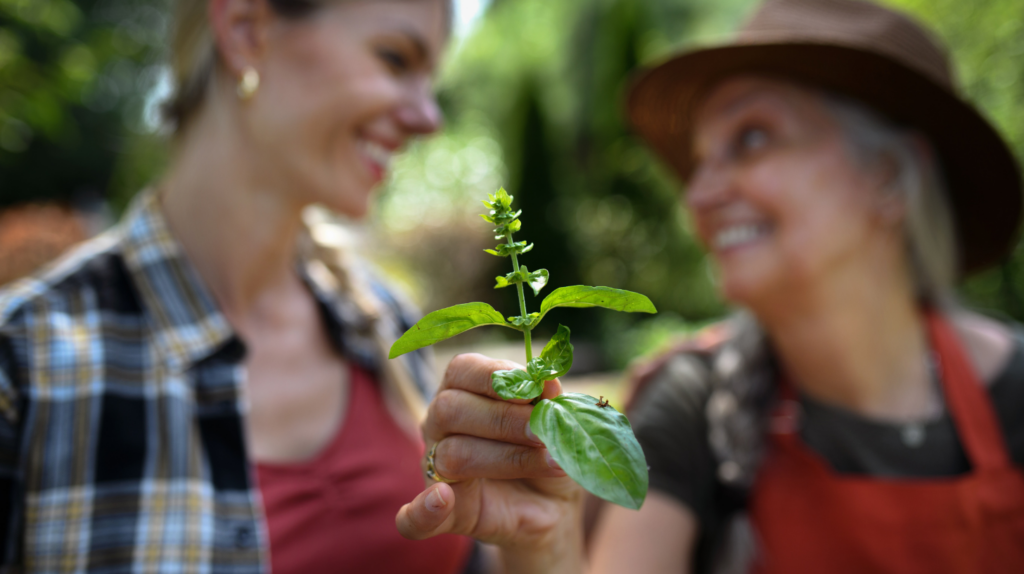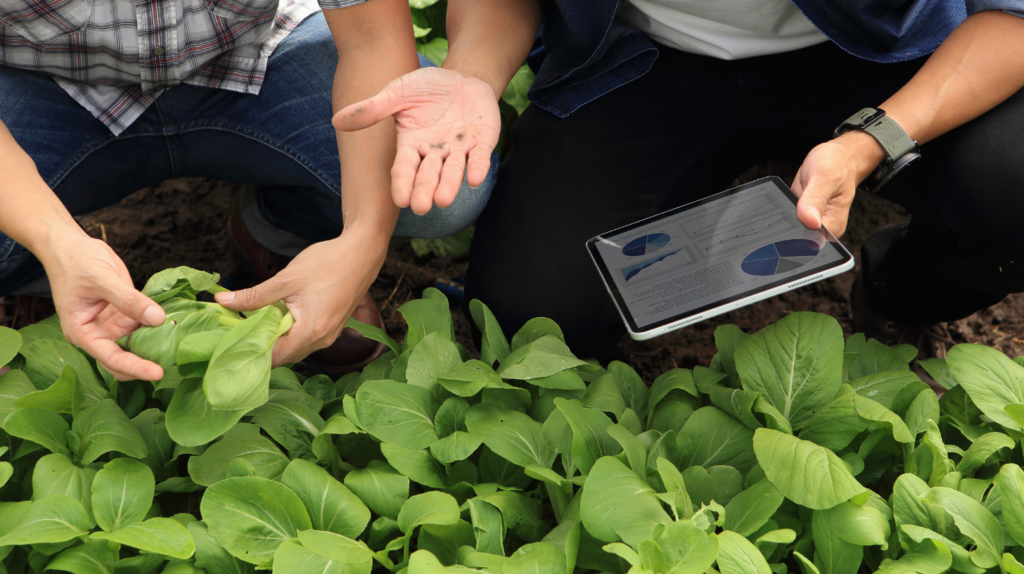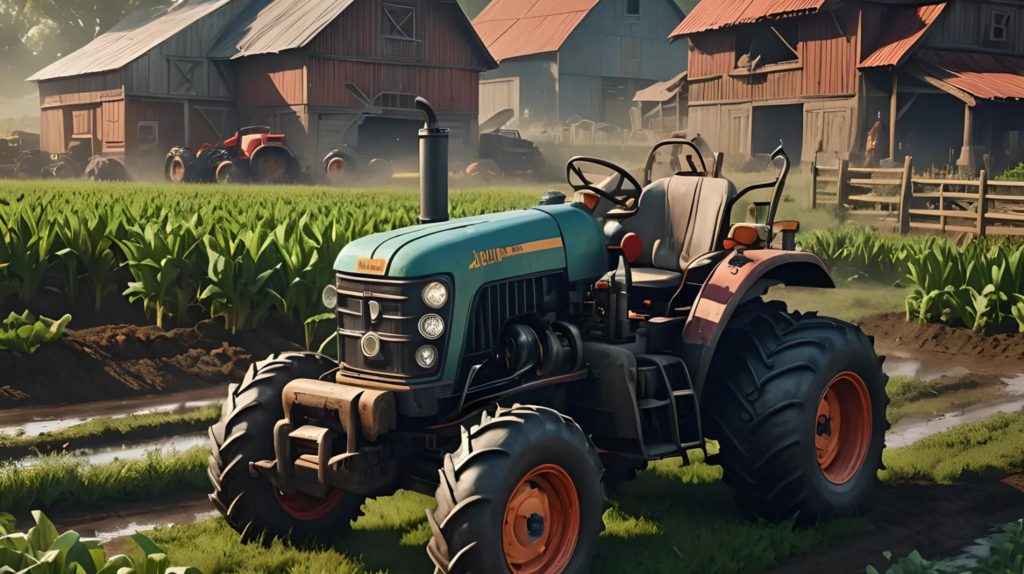In the current “The COVID-19 Pandemic: A Tale of Two Generations in Agro-Entrepreneurship” post, we will focus on one of the topics we addressed in the Pedagogical Guidebook for the Grand Friend project, the challenges faced by young and experienced agro-entrepreneurs during the pandemic and the creative and innovative solutions to these challenges. The onset of the pandemic introduced unprecedented COVID-19 farming challenges, reshaping the global agricultural landscape.
L4Y Learning For Youth GmbH is coordinating the project with the partners’ Citizens in Power, Challedu, KMOP and PFA
Navigating COVID-19 Farming Challenges: Introduction
The COVID-19 pandemic unleashed a disruptive force that swept across all industries, not sparing the agricultural sector, the backbone of global food security. Consequently, agro-entrepreneurs across the spectrum faced significant challenges. These challenges varied uniquely between younger and older generations, showcasing the diverse impacts within the sector. This blog post explores their distinct struggles and adaptations during this period. It highlights successful examples and underscores collaboration’s role in agriculture’s future.
Young Agro-Entrepreneurs: Thriving in a New Landscape
The pandemic triggered a significant shift in consumer behavior. This trend, coupled with an increased focus on health and well-being, presented young agro-entrepreneurs with both challenges and opportunities:
Catering to Evolving Preferences:
Young entrepreneurs, often digitally native and adaptable, readily responded to the growing demand for essential items, locally-sourced goods, and health-conscious products (Bain & Company, n.d.). Take, for instance, the story of Sarah, a young farmer in California, who pivoted her business from wholesale to a Community Supported Agriculture (CSA) model, offering weekly boxes of fresh, seasonal produce directly to consumers through online subscriptions. This shift not only ensured a steady income during the pandemic but also fostered stronger relationships with local communities.
Embracing Digital Transformation:
With a strong understanding of online platforms and digital marketing, young agro-entrepreneurs were well-positioned to leverage these tools. E-commerce platforms like Amazon Fresh or Instacart became vital for reaching a wider customer base, especially in urban areas with better internet access (Akkermans et al., 2022). Social media platforms like Instagram and Facebook played a crucial role in brand building, allowing young entrepreneurs to connect directly with consumers, showcase their products, and build trust through engaging content.
Building Sustainable Practices:
Young agro-entrepreneurs, particularly those catering to Gen Z consumers, who are more likely to follow specific dietary patterns like veganism or flexitarianism (Insight 22, 2022), emphasized sustainable and ethical practices. A report by the United Nations Environment Programme (UNEP) showcases young entrepreneurs worldwide who have been proactive in developing business models that are not only profitable but also sustainable and environmentally friendly. These entrepreneurs have concentrated their efforts on diverse sectors such as waste management, sustainable fishing, and pioneering technologies for clean water and renewable energy. Moreover, their work underscores the capacity of small-scale, environmentally friendly business practices to bolster a more sustainable and resilient global economy amidst the challenges posed by the pandemic.
Established Agro-Entrepreneurs: Navigating the Storm
For older generations of agro-entrepreneurs, firmly rooted in traditional practices, the pandemic posed unique challenges that tested their adaptability:
- Disruptions in Supply Chains: Established businesses faced severe disruptions due to labor shortages, travel restrictions, and logistical breakdowns (OECD, 2020). These challenges forced older agro-entrepreneurs to think outside the box. John, a third-generation dairy farmer in Wisconsin, faced labor shortages due to travel restrictions. He partnered with a local agricultural college to create a training program, upskilling unemployed individuals and building a reliable workforce while offering valuable training opportunities.
- Adapting to Technological Advancements: While some older entrepreneurs were comfortable with traditional methods, the pandemic underscored the growing importance of technology in agriculture. Embracing smart farming technologies like precision agriculture and data analytics has become crucial for optimizing processes and improving efficiency in the face of unprecedented challenges (Swinnen & Vos, 2021). Many universities and agricultural organizations offered training programs and workshops specifically designed for older farmers, helping them bridge the digital gap and integrate new technologies into their operations.
- Maintaining Social Connections: For numerous seasoned agro-entrepreneurs, traditional face-to-face networking and community engagements played a crucial role in both business operations and personal well-being. However, social distancing measures interrupted these vital connections. As a result, discovering alternative methods to sustain these networks, such as engaging in online industry forums or attending virtual conferences, became essential to combating isolation and securing support.
Lessons Learned and the Path Forward
The COVID-19 pandemic has been a transformative experience for the agricultural sector. While the struggles of young and older agro-entrepreneurs differed, the crisis reinforced the value of:
- Innovation: Young agro-entrepreneurs’ digital savviness and adaptability led to innovative solutions. At the same time, older entrepreneurs showcased resilience and resourcefulness, adapting traditional practices to new challenges.
- Collaboration: Intergenerational collaboration enhances knowledge sharing, enriching our grasp of both challenges and opportunities in agriculture. It paves the way for a deeper understanding across the sector.
- Sustainability: The growing demand for ethical and transparent production practices necessitates continuous investments in sustainable agriculture. This is a critical step for the health and resilience of our food systems. The pandemic has notably exposed their interconnectedness and vulnerability to external shocks. While the challenges faced by different generations of agro-entrepreneurs were distinct, the shared experience exposed the need for collective action towards a more resilient and sustainable future for agriculture. By fostering intergenerational collaboration and investing in sustainable practices, the agricultural sector can build a robust future that is equitable, environmentally conscious, and adaptable to meet the evolving needs of a changing world.
Navigating COVID-19 Farming Challenges: Conclusion
The COVID-19 pandemic has been a watershed moment for the agricultural sector. Navigating its challenges successfully has required resilience, adaptability, and a willingness to embrace change. As the industry continues to evolve, collaboration and knowledge sharing between generations of agro-entrepreneurs become increasingly important. These efforts are crucial for driving innovation and creating a future where sustainable food production can meet the needs of a growing global population.
Navigating COVID-19 Farming Challenges: References
- Akkermans, J., Nederlof, S., & Van den Berg, H. (2022). The role of online platforms in the transformation of food systems: Insights from the COVID-19 pandemic. Journal of Rural Studies, 89, 149-162. https://www.mdpi.com/2304-8158/11/18/2816
- Bain & Company. (n.d.). Food trends 2023. https://www.bain.com/insights/trends-in-consumer-products-innovation-insights-from-expo-east-2023/
- Insight 22. (2022). The future of food: 10 key trends shaping the food industry in 2023. https://www.aptean.com/en-US/insights/blog/idc-report-trends
- OECD. (2020). COVID-19 and agriculture: Policy issues and responses. https://www.oecd.org/coronavirus/en/policy-responses
- Swinnen, J., & Vos, R. (2021). The impact of COVID-19 on agri-food systems: A review of the literature. European Review of Agricultural Economics, 48(3), 825-851. https://www.ncbi.nlm.nih.gov/pmc/articles/PMC7237936/
- UNEP (2022). Five young entrepreneurs embracing sustainable business models. https://www.unep.org/news-and-stories/story/five-young-entrepreneurs-embracing-sustainable-business-models

